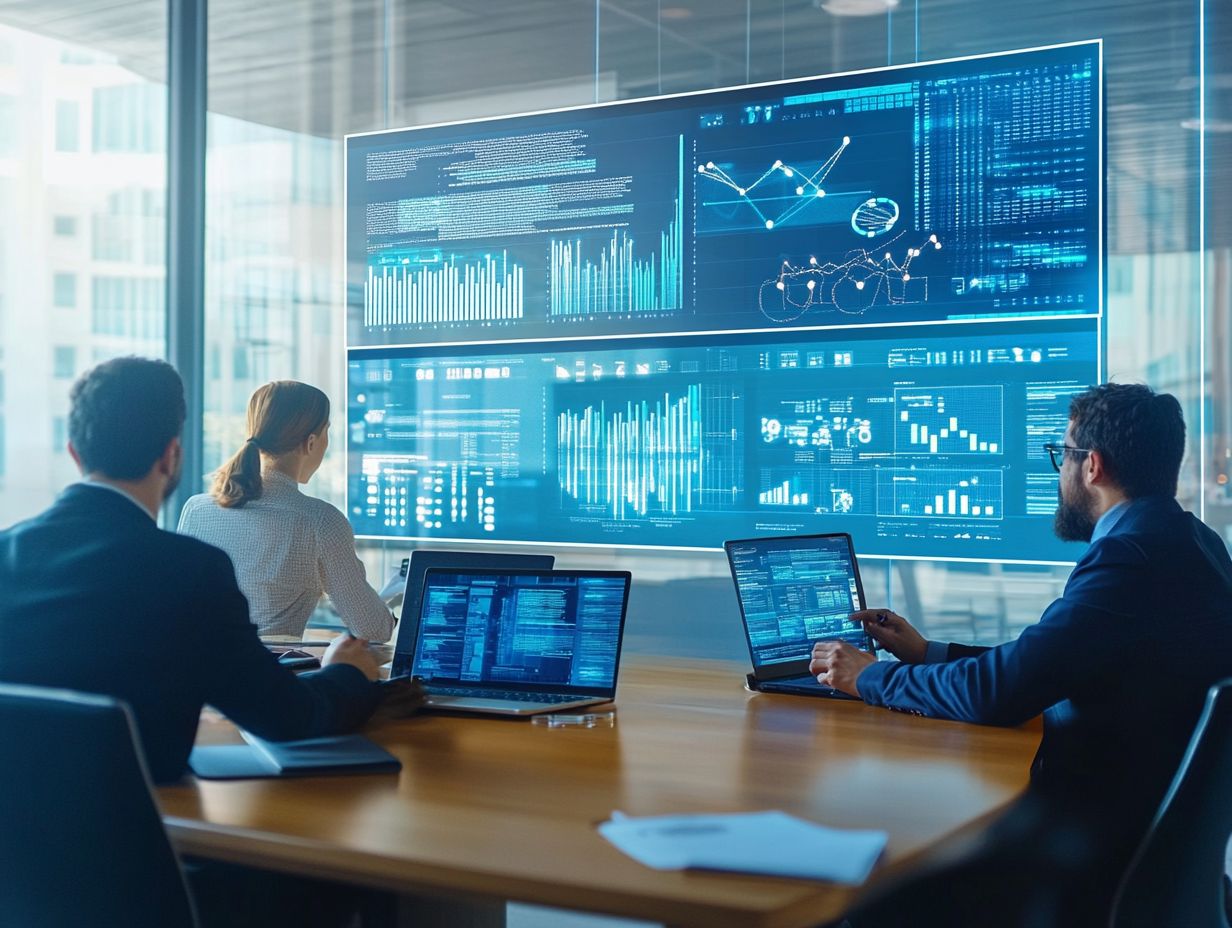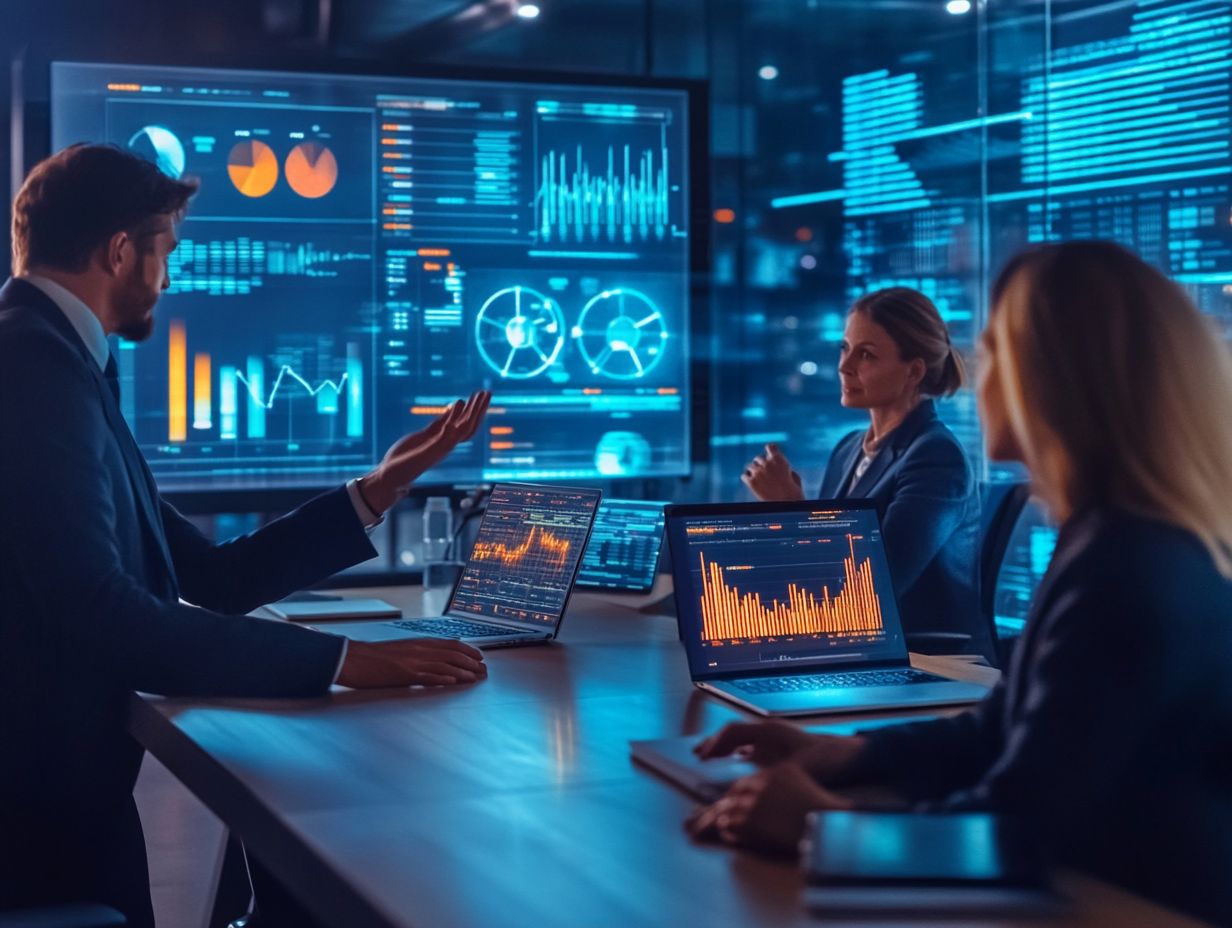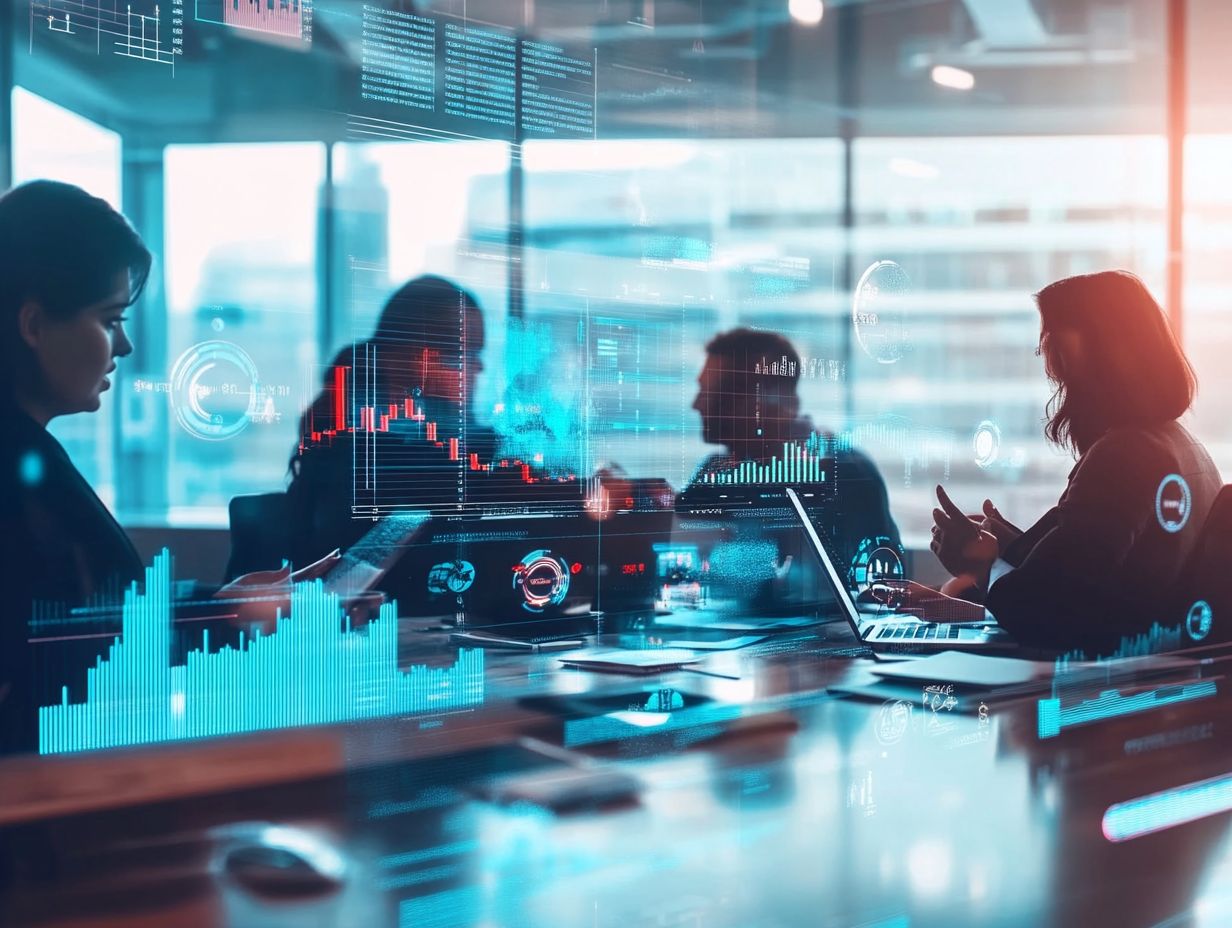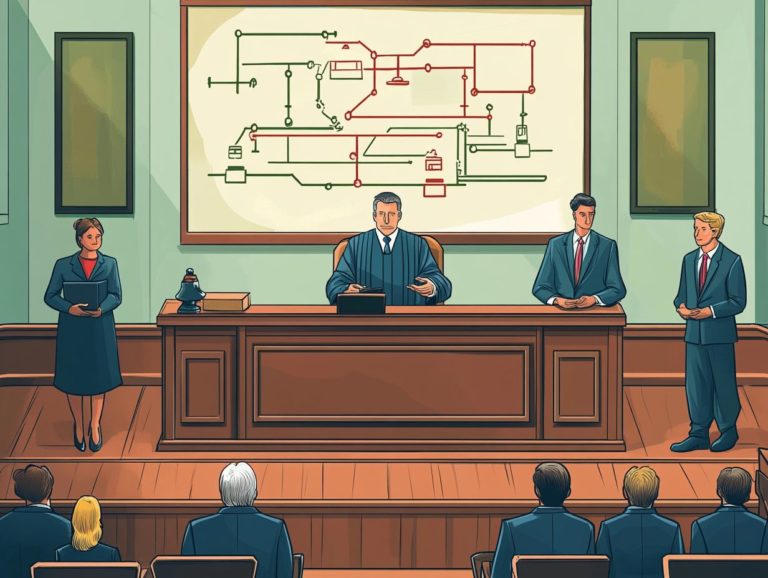How to Leverage Technology for IP Litigation
In the current fast-paced legal landscape, technology is essential in intellectual property (IP) litigation, significantly enhancing both efficiency and effectiveness.
You ll discover the many benefits, types, and best practices for leveraging technology in this domain, including how electronic discovery tools and data analytics can streamline case management and elevate evidence presentation.
However, it s important to recognize the challenges that accompany this shift, such as costs and data security concerns.
Join us as we explore the transformative impact of technology on IP litigation, illuminating the path forward.
Contents
- Key Takeaways:
- Understanding the Role of Technology in IP Litigation
- Benefits of Using Technology in IP Litigation
- Types of Technology Used in IP Litigation
- Challenges and Considerations for Using Technology in IP Litigation
- Best Practices for Leveraging Technology in IP Litigation
- Frequently Asked Questions
- What is IP litigation?
- How can technology be leveraged for IP litigation?
- What is electronic discovery in the context of IP litigation?
- What are the benefits of using technology for IP litigation?
- What types of technology are commonly used in IP litigation?
- Is it necessary to have technical expertise to leverage technology for IP litigation?
Key Takeaways:

- Increased efficiency in case management.
- Essential tools: electronic discovery and data analytics.
- Address challenges: focus on collaboration and training.
Understanding the Role of Technology in IP Litigation
In today’s dynamic realm of intellectual property (IP) law, technology emerges as a cornerstone, significantly enhancing the efficiency of legal professionals and shaping the future of IP litigation in a digital age.
As patent applications become more intricate and compliance standards tighten, embracing emerging technologies is essential. These innovations streamline workflows, refine case strategies, and ultimately elevate the client experience.
Modern law firms increasingly acknowledge that technology is not merely a supplementary tool; it s an important part of running a law firm that enhances operational efficiency, risk mitigation, and proactive monitoring of patent portfolios.
Benefits of Using Technology in IP Litigation
The benefits of leveraging technology in IP litigation are extensive and transformative, as outlined in the influence of technology on IP litigation outcomes, enabling law firms to adapt to evolving client demands while significantly enhancing operational efficiencies.
By adopting software solutions for patent management, you can automate workflows, harness predictive analytics for improved case outcomes, and maintain robust performance metrics to monitor progress.
This approach not only streamlines the management of patent applications but also strengthens communication with clients, ensuring they remain well-informed throughout the litigation process.
Efficiency and Effectiveness in Case Management
Efficiency and effectiveness in case management are essential in IP litigation, where the stakes are high and deadlines come at you fast.
By leveraging workflow automation, you can streamline processes to meet deadlines and enhance your case strategy. This focus on operational efficiencies elevates the client experience and fosters a client-centric approach that is vital in today s competitive landscape.
Integrating technology such as automated alerts and deadline reminders enables you to manage tasks proactively, significantly reducing the chances of oversight. These tools provide real-time updates on case developments, allowing you to make informed decisions swiftly.
Furthermore, integrating communication platforms can strengthen client relationships by keeping clients informed with organized updates and responsive service.
Ultimately, these technological advancements lead to greater transparency and trust crucial elements in building lasting client partnerships in the intricate world of intellectual property law.
Improved Evidence Collection and Presentation
Improved evidence collection and presentation are essential in IP litigation, where careful documentation can change the outcome of a case. By utilizing advanced tools for data-driven decisions and understanding the role of the internet in IP litigation, you can efficiently extract and organize legal documents, ensuring that all evidence is presented in compliance with relevant standards.
This systematic analysis not only bolsters your case arguments but enhances your credibility in the eyes of both clients and the court.
Leveraging technologies like artificial intelligence and machine learning allows you to sift through vast amounts of data quickly, identifying patterns or anomalies that might escape human analysts. Incorporating blockchain technology ensures the integrity of evidence by providing an immutable record of all transactions and interactions, fostering trust throughout the legal process.
Adhering to standards such as ISO 9001 establishes a robust framework that supports effective litigation strategies while minimizing the risk of errors.
By embracing these innovations, you streamline the evidence management process and align your legal practices with modern expectations, ultimately paving the way for more favorable outcomes.
Types of Technology Used in IP Litigation

The technology employed in IP litigation is both diverse and continually evolving, mirroring the complexity of legal processes and the imperative for stringent compliance. Understanding how to track IP litigation trends effectively is crucial. Tools that help lawyers find and manage important digital documents have transformed the way legal professionals handle extensive volumes of data, allowing for more efficient retrieval and analysis.
When combined with data analytics and visualization software, these technologies enable you to gain a comprehensive understanding of case dynamics and market trends. This ultimately enriches your strategic insights for litigation.
Electronic Discovery Tools
Electronic discovery tools are essential in IP litigation, acting as the backbone for efficient legal research and evidence management. These tools simplify the identification, collection, and analysis of relevant legal documents, ensuring you stay compliant with established standards.
With powerful capabilities to sift through vast amounts of data, electronic discovery platforms significantly enhance your ability to present compelling evidence effectively.
As you explore various options in the market like Relativity, Everlaw, and Logikcull you’ll find that each tool comes with unique functionalities tailored to meet different case management needs. These platforms do more than just facilitate data processing; they integrate advanced features like predictive coding a method that uses algorithms to sort documents based on relevance which boosts accuracy and reduces manual review time.
They also ensure the secure handling of sensitive information, making it easier for you to comply with legal and regulatory standards. Ultimately, these electronic discovery tools are invaluable allies for legal teams aiming to stay organized and focused on their strategic objectives in an increasingly complex litigation landscape.
Data Analytics and Visualization Software
Data analytics and visualization software are becoming essential tools in IP litigation, providing you with critical resources for predictive analytics and strategic insights.
By transforming raw data into visual formats, these technologies offer you a more intuitive understanding of case trends and performance metrics, enabling you to make informed decisions throughout the litigation process. This capability allows you to adapt your strategies effectively to meet client demands and improve overall case outcomes.
These tools dive into large datasets, often pulling from market analysis, previous litigation outcomes, and competitive intelligence, enabling you to identify patterns and anticipate the likelihood of success in various IP disputes.
For instance, consider the case of a technology company that leveraged advanced visualization software to analyze patent litigation trends. This approach allowed them to negotiate a favorable settlement before stepping foot in the courtroom.
Firms that embrace data analytics report enhanced efficiency in tracking cases and managing resources, marking a significant shift toward a data-driven approach in legal strategies. As the field continues to evolve, these applications not only optimize outcomes but also align your legal efforts with broader business objectives.
Challenges and Considerations for Using Technology in IP Litigation
Integrating technology into IP litigation brings many advantages, but it also introduces challenges that legal professionals must navigate effectively, particularly in understanding the role of technology in IP strategy.
Cost and resource allocation issues become significant, especially when shifting from legacy systems to advanced solutions. As reliance on technology grows, safeguarding data security and confidentiality is crucial.
You need to set strict measures to protect sensitive information effectively.
Cost and Resource Allocation
Cost and resource allocation are key factors in successfully adopting technology in IP litigation. They play a vital role in your law firm s ability to enhance operational efficiencies.
The financial burden of investing in advanced tools can seem daunting, especially for smaller firms that may struggle to allocate necessary resources for these upgrades.
However, understanding the long-term benefits of technology can help you make informed decisions that align with your strategic goals. When evaluating costs, consider both the initial expenditure and the potential long-term returns on investment (ROI), which is the benefit you gain compared to what you spend.
A well-planned investment in technology can lead to faster case resolutions and improved client satisfaction, ultimately contributing to your firm s revenue growth.
Exploring various funding options, such as grants or partnerships with technology vendors, can ease financial strain. Strategic resource allocation prioritizing essential tools and implementing them in phases can effectively manage budget constraints while ensuring a smoother transition into a technologically advanced operational framework.
Data Security and Confidentiality

Data security and confidentiality should be your top priorities in IP litigation, especially as you navigate the changing landscape of legal technology. Understanding the importance of IP education in litigation is crucial as you adopt new tools, making it essential to safeguard sensitive client information and ensure compliance with relevant standards in this increasingly complex environment.
It is essential to implement robust security protocols and stay updated on data regulations to protect your clients effectively.
Consider utilizing advanced measures such as data encryption, which scrambles information to prevent unauthorized access. Also, enforce strict access controls to ensure only authorized personnel can access sensitive data.
Regular audits and compliance checks against standards like ISO/IEC 27001 will improve your security management practices, fortifying your systems against potential breaches.
Cultivating a culture of security awareness within your firm is vital. Ongoing training for your staff can significantly reduce risks associated with human error. By integrating these practices and leveraging technology, you can strengthen your defenses in IP litigation.
Best Practices for Leveraging Technology in IP Litigation
Effectively leveraging technology in IP litigation requires adopting best practices that promote collaboration and communication among legal professionals, as outlined in the role of technology in modern IP litigation.
By fostering a culture of innovation and continuous learning, you ensure your team possesses the skills needed to use advanced tools effectively.
Investing in training and familiarization with technology not only enhances your case strategies but also drives significant improvements in workflow transformation.
Effective Collaboration and Communication
Collaboration and communication are essential for leveraging technology effectively in IP litigation. To enhance your approach, consider understanding how to protect your IP rights during litigation. These elements influence both your internal team dynamics and the overall client experience.
When legal professionals collaborate seamlessly through technology, the sharing of insights and strategies is enhanced. Regular communication keeps clients informed throughout the litigation process, strengthening relationships and improving outcomes.
Modern tools like legal project management software streamline workflows and facilitate real-time updates among team members. These technologies allow centralized document sharing, task assignments, and deadline tracking, ensuring alignment.
Utilizing communication platforms fosters quick discussions and feedback loops, which are crucial for refining strategies and addressing client concerns promptly.
By actively seeking client input and adapting processes based on feedback, you create a more responsive and satisfying experience. Ultimately, using these helpful tools enhances internal synergy while enriching client interactions, leading to successful litigation outcomes.
Training and Familiarization with Technology
Mastering technology is key to unlocking your firm’s potential! Training and familiarizing yourself with advanced tools in IP litigation are crucial. Establishing a structured training program ensures that your staff becomes proficient in the software solutions and techniques that enhance efficiency and compliance in their workflows.
This dedication to following processes elevates individual performance and drives the overall success of your firm.
Explore various training methodologies, such as:
- Hands-on workshops
- Interactive e-learning modules
- Peer mentorship
These methods accommodate different learning styles within your team. For example, a law firm that adopted a blended learning approach observed a remarkable boost in productivity, illustrating the significant returns of a comprehensive training plan.
Getting acquainted with new technologies enhances user confidence and accelerates adoption, enabling teams to integrate solutions smoothly into their practices.
For instance, a firm that implemented a new document management system saw a 30% reduction in time spent on document retrieval post-training, highlighting the strong link between effective training and improved performance.
Frequently Asked Questions
What is IP litigation?

IP litigation refers to the legal process of resolving disputes related to intellectual property, such as patents, trademarks, and copyrights.
How can technology be leveraged for IP litigation?
Technology can enhance IP litigation in several ways:
- Electronic discovery
- Document management
- Data analysis
- Trial presentation
What is electronic discovery in the context of IP litigation?
Electronic discovery, or e-discovery, is the process of finding and reviewing digital information relevant to a case.
What are the benefits of using technology for IP litigation?
Using technology for IP litigation can:
- Streamline the legal process
- Reduce costs
- Improve the accuracy of case management
- Enhance evidence presentation
What types of technology are commonly used in IP litigation?
Common types of technology used in IP litigation include:
- E-discovery software
- Document management systems
- Data analytics tools
- Trial presentation software
Is it necessary to have technical expertise to leverage technology for IP litigation?
While having some technical expertise can be beneficial, it is not necessary. Many law firms and litigation support teams employ professionals who specialize in using technology for legal matters.
Ready to enhance your IP litigation process? Start exploring these technologies today!






